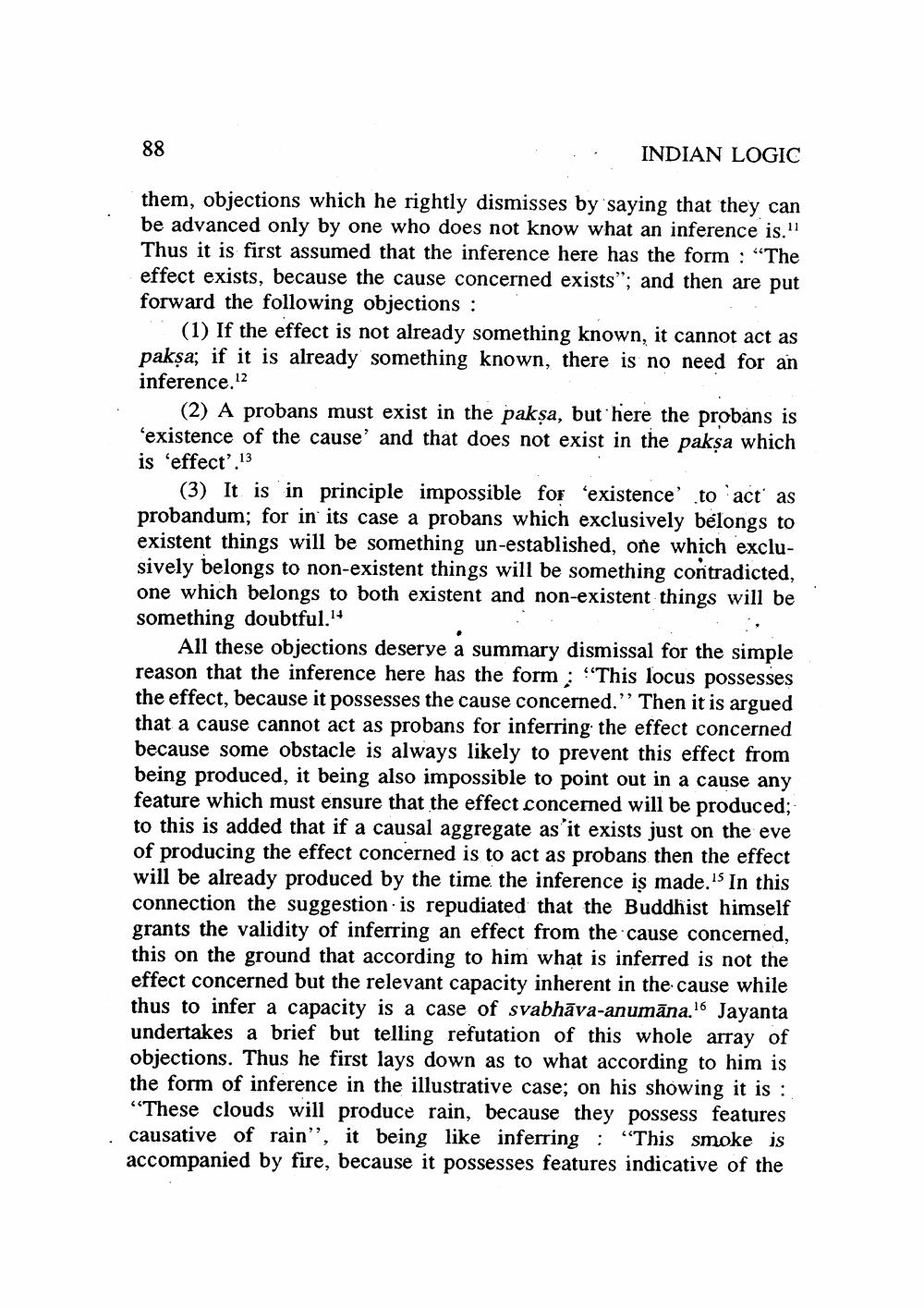________________
88
INDIAN LOGIC
them, objections which he rightly dismisses by saying that they can be advanced only by one who does not know what an inference is." Thus it is first assumed that the inference here has the form : "The effect exists, because the cause concerned exists"; and then are put forward the following objections :
(1) If the effect is not already something known, it cannot act as paksa; if it is already something known, there is no need for an inference.12
(2) A probans must exist in the paksa, but here the probans is 'existence of the cause and that does not exist in the paksa which is 'effect’.13
(3) It is in principle impossible for 'existence to act as probandum; for in its case a probans which exclusively belongs to existent things will be something un-established, one which exclusively belongs to non-existent things will be something contradicted, one which belongs to both existent and non-existent things will be something doubtful."
All these objections deserye a summary dismissal for the simple reason that the inference here has the form : "This locus possesses the effect, because it possesses the cause concerned." Then it is argued that a cause cannot act as probans for inferring the effect concerned because some obstacle is always likely to prevent this effect from being produced, it being also impossible to point out in a cause any feature which must ensure that the effect concerned will be produced; to this is added that if a causal aggregate as'it exists just on the eve of producing the effect concerned is to act as probans then the effect will be already produced by the time the inference is made. In this connection the suggestion is repudiated that the Buddhist himself grants the validity of inferring an effect from the cause concerned, this on the ground that according to him what is inferred is not the effect concerned but the relevant capacity inherent in the cause while thus to infer a capacity is a case of svabhāva-anumāna. 16 Jayanta undertakes a brief but telling refutation of this whole array of objections. Thus he first lays down as to what according to him is the form of inference in the illustrative case; on his showing it is : “These clouds will produce rain, because they possess features causative of rain", it being like inferring : “This smoke is accompanied by fire, because it possesses features indicative of the




